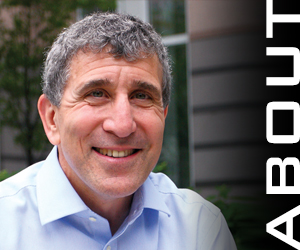Today's CPA | Winter 2019
Yes, You Are a Mentor
As business leaders, we must recognize that the actions we take and the decisions we make always affect the people around us.

Todd Shapiro
ICPAS President & CEO
Inside Insights From the CEO
In full disclosure, I don’t consider myself a mentor. While I’ve always
thought of myself as a teacher or coach, I’ve never been assigned
as someone’s mentor—nor has anyone informally or formally
requested that I mentor them. When it comes to managing people,
my goal has been simple: help them become better businesspeople.
But, I recently had a candid conversation with a fellow Society staff
member that has me thinking differently.
As we talked about things like feedback and the challenging, and
sometimes difficult, business decisions leaders must make—and
how these things influence others throughout their organizations—he challenged that I am a mentor whether I choose to be or not.
Truthfully, I try to be a transparent and highly visible CEO to both
the Society’s staff and its members—a leader that's engaged in all
areas of the organization but not micro-managing. The staff
member who I was conversing with stated that my actions inevitably
position me where people watch what I do, learn from me, and are
influenced by me. So, he concluded that while I may not formally
mentor a single individual, I informally mentor many inside and
outside the organization.
As I noted, I’ve always thought of myself as a teacher or coach and
have taken great pride in helping people move forward. It’s a
responsibility that I take very seriously and conscientiously as a
business leader. I guess you could say I at least have the makings
of a mentor mindset. Maybe that’s why this conversation led me
to wonder how many others, due to their position, skill, or
management responsibilities, are in positions where they’re developing, influencing, and guiding people but never consider
that they should be operating with a mentor mindset. My concern
now is that many of us in leadership positions are leaving the
mentoring to others.
In a manufacturing environment, hard assets, such as machinery and
equipment, are carefully cared for and maintained—maintenance
schedules are strictly adhered to, and downtime is critical. In the
accounting profession, our number one asset is people. Yet, too
often, we watch our staffs get burned out or disenchanted. We
passively refer to management and leadership as soft skills, so we
often pass up formal development of these critical areas. We don’t
intentionally operate with a mentor mindset and then we wonder
why we see poor retention rates across the profession.
We are part of a profession that is facing significant change over
the coming years. Baby boomers will be retiring en masse, passing
on their torches to new generations of firm and corporate leaders.
Technological advances are impacting both who we hire and how
many staff we hire. When I think about these shifts in our business
landscape, of which there are many more, it becomes clear to me
that the need for a mentor mindset is more critical than ever.
We all have a stake in moving the profession forward and should
strive to leave it in a better place than when we came into it. How
we accomplish this is by recognizing that we all have a
responsibility for mentoring others, whether formally or informally,
no matter our level, or title, or place in public accounting or
corporate finance. So, I encourage you to be the coach, to be the
teacher, and to be the mentor that you are. With intentional mentor
mindsets there are no problems too big for us to solve because,
together, we will move our profession forward.